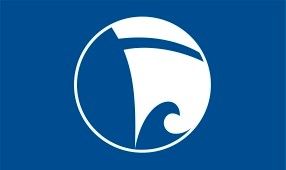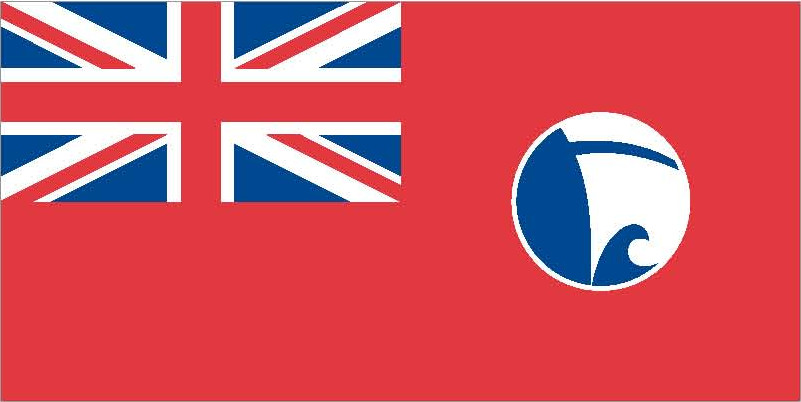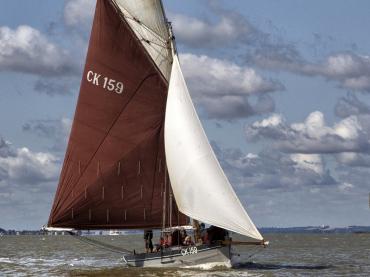Details
Construction
Dimensions
History
FAVOURITE is known as a Whitstable oyster yawl and was built by the Whitstable Shipbuilding Company based at Island Wall, Whitstable, in 1890. Her port of registry is Faversham with the fishing number F69. Her hull is carvel built with oak frames and pitch pine planking, fastened with bronze boat nails. She has a bow with a plumb straight stem and long counter stern. Her single timber mast is gaff-rigged, ‘yawl’ being a local term only and she was never fitted with an engine.
FAVOURITE was commissioned by Edward ‘Pikey’ Carden, the landlord of the Fisherman's Arms on Island Wall. She was used by Carden and others in a private capacity as flatsmen to dredge oysters on the Kent flats off Tankerton. She was also under contract to the Whitstable Oyster Fishery Company and the Seasalter and Ham Fishery Company to dredge the Whitstable native oysters from the Company controlled bed off Whitstable and Seasalter.
In 1918, FAVOURITE was sold to the Whitstable Oyster Fishery Company who operated her until 1939. In 1920, the Whitstable oyster beds extended over five thousand acres with an annual trade of eighty to one hundred and fifty thousand pounds. However, in 1921-1922, seventy-five per cent of the stock was destroyed by the parasite Haxamita. In 1929, a severe winter hit the industry further.
FAVOURITE was machine-gunned by an enemy aircraft and began to sink. She was beached and dragged up the shore. After the Second World War, the Whitstable Oyster Fishery Company did not resume dredging, but the Seasalter Ham Company did. However, FAVOURITE was left on the beach and in 1952, was found to be in the direct line of the proposed new sea wall. Rather than be broken up she was bought by Harry Hurford-Janes, a London author with a seaside cottage on Island Wall, who dragged her to the landward side of the seawall and used her as a summer house.
In 1964, the Seasalter Shellfish Company (direct descendants of the Seasalter and Ham Company) started experiments into the scientific farming of oysters and in 1967 they began selling oyster seed to other commercial companies. In 1972, the Pollard grounds were re-opened for commercial fisheries. In 1977, Mr. Hurford-Janes sold his home at 28 Island Wall and the new owners, wishing to extend the cottage, enquired of the Whitstable Society the best way to dispose of or preserve Favourite.
The Favourite Trust was set up in 1978 with the expectation that her hull could continue to be preserved for a decade or so as a charming wreck but that she would eventually collapse. However an industrial archaeologist pointed out that she was over 50% original and was the sole representative of a Whitstable Oyster Yawl in public ownership. Efforts were redoubled to support and preserve her hull as best we could with limited funds and to communicate her importance to the people of Whitstable through the good offices of the Whitstable Museum. FAVOURITE’s lines were taken off by a draughtsman with framing details to ensure her hull shape would be preserved.
By 2000 it was clear that interest in preserving Favourite had increased and funds had been raised with the result that a shipwright restored the stem and put in a more effective hull support system. The Favourite Trust had been registered as a charity and bids for funding were made with success from the Maritime Heritage Trail (Interreg III with others), Living Spaces and the Heritage Lottery Fund to rebuild Favourite, improve the site where FAVOURITE was displayed to create interpretation materials.
In 2005, shipwright Ashley Butler (Butlers Wooden Boats) was consulted on rebuilding FAVOURITE using the accurate lines available and the topside planking still in reasonable condition. Ashley’s advice was that it would be cheaper to rebuild a copy from scratch. However the Trust felt that would not fulfill the local people’s wish to preserve the last of the oyster yawls still in Whitstable.
In the event an excellent job was done by Ashley Butler and the hull is on proud display just behind the seawall in Whitstable. As Favourite would have originally been built on the shingle beach that is Island Wall, the site was restored as a beach and now has an impressive display of shingle flora. We estimate that each year tens of thousands of people, both local and visitors, view FAVOURITE over a typical year as she is next to the beach. With the help of Whitstable Museum, leaflets were designed and information boards created by a local artist John Cann. The rebuilding process was photographed and the set can be seen on the website www.favourite.org.uk.
In November 2009, Whitstable Museum created an exhibition based around the FAVOURITE. This was translated into a permanent exhibit around a full-size replica frame, shipwright’s tools and model oyster yawls.
Classic Boat
Key dates
-
1890
Vessel built by the Whitstable Shipping Company and sold into private ownership
-
c 1910
Hull bottom planking doubled
-
1918
Sold to the Whitstable Oyster Fishery Company
-
1939
Ceased active fishing
-
1944
Machine gunned at anchor by enemy aeroplane, beached
-
1952
Purchased by London author and placed in beach garden
-
1977
Transferred to public ownership, Favourite Trust formed
-
1978
Vessel moved to council owned land
-
2000
Favourite Trust became a registered charity
-
2006
Hull rebuilt using Heritage Lottery Funds
Grants
-
2003/04
The Heritage Lottery Fund awarded £49,425 for restoration of hull and publicity
Sources
Classic Boat: Ashley launches Lucie B, October 2005
Gregory, Stella, Whitstable Gazette: Favourite under threat, pp12, 4 Feburary 1999
Gregory, Stella, Whitstable Gazette: Mary Rose method a Favourite, pp12, 4 February 1999
Gregory, Stella, Whitstable Gazette: Last oyster yawl will be preserved, 14 October 1999
Eve, Joanna, Whitstable Times: When hundred of yawls went oyster dredging, pp10, 6 March 1997
Whitstable Times: Making a start on restoring the favourite, 18 November 1999
Lear, Sarah, Whitstable Times: Rescue for an old favourite, 14 October 1999
Own this vessel?
If you are the owner of this vessel and would like to provide more details or updated information, please contact info@nationalhistoricships.org.uk




















